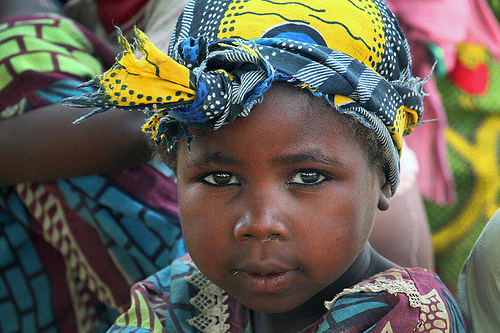By Danielle Johnson
Two-thirds of Niger is covered by vast swathes of the Sahara desert. Droughts are common; food security issues are endemic and are further exacerbated by the increasing arrival of refugees fleeing northern Nigeria and northern Mali. These conditions, when coupled with prevalent infectious disease and one of the lowest sanitation coverage rates in the world, leave the West African nation of Niger with some of the highest rates of malnutrition and mortality in the world. Niger, a country roughly twice the size of France, is the poorest country on earth.
Roughly half the total population in Niger lack access to safe water and 90% of the population has no access to a simple toilet. The health implications are staggering. Some 12,000 children die each year from diarrhea caused by unsafe water and poor sanitation in Niger. A 2010 USAID report indicated that over 20% of all deaths in Niger can be attributed to poor sanitation and hygiene alone. Here, water is everything and the burden of providing water falls disproportionately on the shoulders of women and girls.
In Africa, women and girls invest some 40 billion hours a year walking to fetch water for their families, which is often contaminated. They have no choice but to trek several miles in difficult conditions in search of water. They lower buckets by rope into deep wells, work that is both difficult and dangerous, and then begin their long journey home, lugging their precious cargo. Girls miss school to complete this task which traps them in a cycle of poverty that stifles their individual potential and hinders Niger’s development as a whole.
In Niger, approximately 85% of women are illiterate and 40% of girls are married before their 15th birthday. Niger is among the world’s top 15 countries with the worst maternal mortality rates, with one-third of maternal deaths occurring among girls between the ages of 15-19. These numbers demonstrate why education and economic empowerment of women are so critical. Study after study has proven that women are more likely to invest income in their children, fueling a virtuous cycle that helps to lift future generations out of poverty. Statistically, when girls are educated they marry later and are less likely to suffer complications or die in pregnancy and childbirth. They also tend to have healthier children and are more likely to send them to school.
In addition to providing water, women are largely in charge of planting, harvesting and milling cereals, all while caring for their children. Niger has the highest fertility rate in the world, with more than 7 children born to each woman. These women are incredibly hardworking and resourceful yet most lack access to productive resources. Wells Bring Hope (WBH) is changing this by providing the women of Niger with the tools they need to better support themselves and their families. The untapped potential of women and girls in Niger is just as much an opportunity as it is a tragedy.
Ironically, Niger has a plentiful supply of underground aquifers but lacks the ability to harness their potential. WBH is changing this, one well at a time. Once we drill a well, the impact on health and sanitation for the entire village is immediate and transformative. Infant mortality drops by up to 70%. Villagers are educated in good hygiene practices and sanitation. They learn how to protect water from contamination, how to prevent trachoma and how to use grey water to improve farming. Latrines are constructed. Infectious disease plummets. Perhaps just as importantly, once a village has an established safe water source girls are finally able to attend school. Women find themselves with 50% more free which they can now utilize to earn income. And when women work, economies grow.

WBH provides mircofinance education to women in every village. Women are taught how to manage money, but many must first learn how to count and do simple math. They then work together to form savings groups and become micro-entrepreneurs, starting businesses to earn income they will use to support themselves and their families. Their empowerment translates to an overall increase in economic productivity. This leads to improvements in the health and nutrition of the village as a whole, but especially for its most vulnerable demographic – their children.
Regional instability impacts Niger on nearly every border, with the violent networks of Boko Haram, AQIM, MUJAO and other extremist groups drawing the world’s attention in recent years. The world watched in horror in April 2014 when, in violent opposition of education, Boko Haram kidnapped 276 girls from a school in Chibok, Nigeria. As Malala Yousafzai so bravely and famously testified, education disempowers terrorists and maintains the ability to transform a society. Regarding Yousafzai’s shooting, UN Secretary General Ban Ki-moon noted, “the terrorists showed what frightens them most: a girl with a book.”
At current fertility rates the population of Niger will more than triple by 2050, making the nation’s youth more important than ever in securing a more stable and prosperous future. A burgeoning population will place added stress on already limited resources and lacking sanitation coverage. Improving sustainable access to safe water, improving proper sanitation and promoting good hygiene practices are critical and immediate needs WBH will continue to address in Niger. The longer term benefit of securing access to education for girls is critical to broader development efforts, which WBH is helping to make a reality in each village a well is drilled. Women who are empowered are more likely to stand up against injustice and contribute to ensuring economic and sociopolitical stability. An empowered woman becomes a force multiplier which is precisely why violent extremists are so afraid of girls with books.


